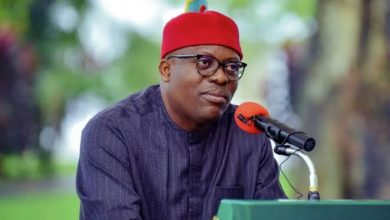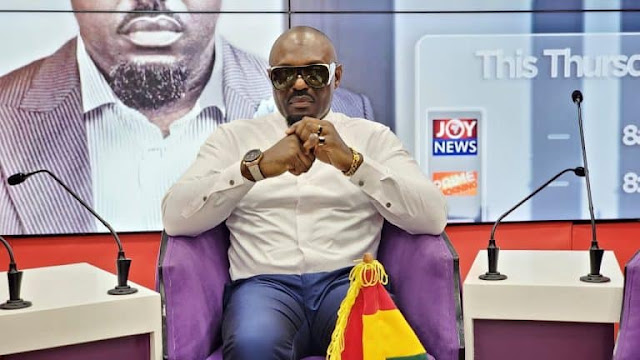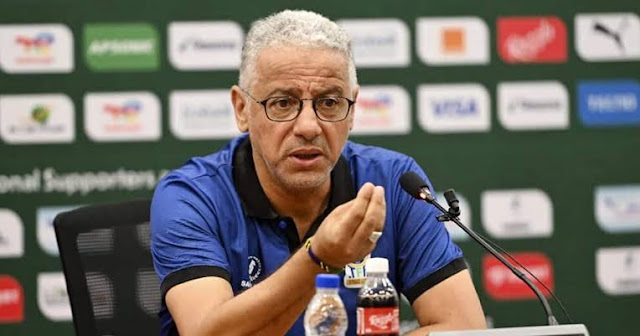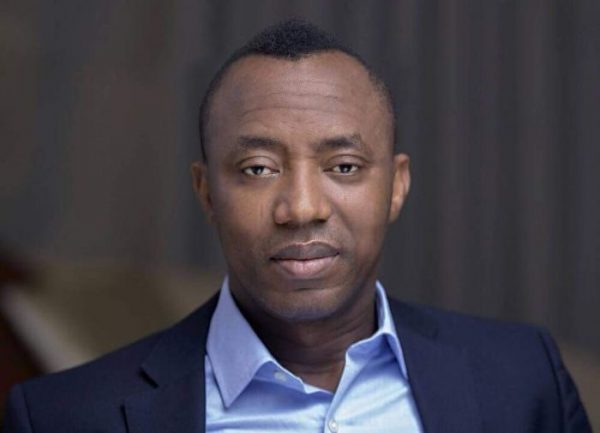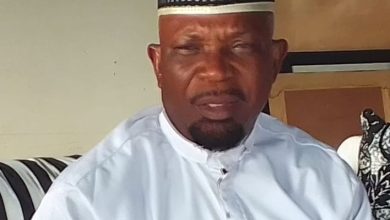In a dramatic turn of events that has captivated the political landscape of Nigeria, Governor Siminalayi Fubara of Rivers State is poised to reclaim full control following the abrupt collapse of efforts to extend the controversial emergency rule in the oil-rich state. The failed bid for an extension of emergency measures, ostensibly aimed at stabilizing the state’s governance amid escalating tensions, has instead paved the way for Fubara’s unhindered return to power, signaling a potential de-escalation in the protracted feud with his predecessor and political godfather, Nyesom Wike.
This article delves deeply into the intricacies of this unfolding drama, exploring the historical context of the Rivers State political crisis, the key actors involved, the mechanics of the emergency rule proposal, the factors leading to its downfall, and the broader implications for Nigerian federalism, state autonomy, and the ruling All Progressives Congress (APC) dynamics. By examining these elements, we can appreciate not only the immediate relief for Fubara but also the long-term ramifications for Nigeria’s democratic processes.
The Genesis of the Rivers State Political Crisis
To understand the significance of Fubara’s impending return, one must first trace the roots of the crisis that has gripped Rivers State since late 2023. Rivers State, located in the Niger Delta region and renowned for its vast oil and gas reserves, has long been a hotbed of political intrigue. The state contributes significantly to Nigeria’s economy, accounting for a substantial portion of the nation’s crude oil production, which makes it a prize in the eyes of political heavyweights.
The crisis erupted shortly after Siminalayi Fubara, a relatively low-profile civil servant and accountant, was sworn in as governor on May 29, 2023, succeeding Nyesom Wike, who had served two terms as governor from 2015 to 2023. Wike, a charismatic and influential figure in the Peoples Democratic Party (PDP), had handpicked Fubara as his successor, believing him to be a loyal ally who would continue his political legacy and protect his interests. However, this assumption proved disastrously wrong. Within months, fissures appeared in their relationship, fueled by allegations of betrayal, control over state resources, and differing ambitions.
The flashpoint came in October 2023 when tensions boiled over during a session of the Rivers State House of Assembly. Pro-Wike lawmakers, who held the majority at the time, attempted to screen and confirm a list of commissioner nominees submitted by Fubara. Chaos ensued as Fubara’s supporters clashed with Wike’s loyalists, leading to the demolition of part of the assembly complex by unknown assailants—a move widely attributed to Fubara’s camp. This incident symbolized the breakdown of trust and escalated the conflict into a full-blown constitutional standoff.
In response, the pro-Wike assembly defected en masse to the APC, leaving Fubara isolated within the PDP. The governor, in turn, declared the assembly’s actions null and void, leading to parallel legislative bodies and a series of legal battles. The Supreme Court and other judicial bodies became inundated with petitions, but the crisis persisted, paralyzing governance in the state. Economic activities suffered, with investors wary of the instability, and the people of Rivers State caught in the crossfire of this power tussle.
At the national level, the crisis drew the intervention of President Bola Tinubu, who, as the APC leader, sought to mediate. In December 2023, an eight-point peace agreement was brokered at the Presidential Villa in Abuja, where Fubara agreed to recognize the pro-Wike assembly led by Martin Amaewhule, withdraw court cases, and resubmit the commissioner list for approval. Wike, now the Minister of the Federal Capital Territory (FCT), reciprocated by promising non-interference. However, the truce was short-lived. Both sides accused each other of violations, with Fubara claiming sabotage and Wike alleging insubordination.
This backdrop of betrayal and brinkmanship set the stage for the emergency rule proposal, which emerged as a desperate measure to wrest control from Fubara and install a more pliable administration.
The Emergency Rule Proposal: A Desperate Gambit
Emergency rule in Nigeria is a constitutional provision under Section 305 of the 1999 Constitution (as amended), allowing the President to declare a state of emergency in any state or the federation if there is a breakdown of public order, a threat to national security, or a natural disaster that overwhelms state capacities. Such a declaration suspends the state’s democratic institutions temporarily, placing governance under federal control, often through an administrator appointed by the center.
In the case of Rivers State, the move for emergency rule gained traction in mid-2025 amid renewed violence and political assassinations linked to the Fubara-Wike feud. Reports of sporadic clashes between supporters of both camps, coupled with the bombing of the assembly complex and attacks on political figures, painted a picture of anarchy. Pro-Wike forces, backed by influential APC elements at the federal level, argued that the state’s security had deteriorated to a point where federal intervention was necessary to restore order.
Sources close to the matter, indicate that the proposal was spearheaded by Wike’s allies within the National Assembly and the presidency’s inner circle. It was rumored that President Tinubu, under pressure from party loyalists, was considering the option as a way to neutralize Fubara, who had increasingly aligned himself with opposition forces and resisted federal directives on oil revenue sharing and infrastructure projects. The extension of emergency rule—initially contemplated as a short-term measure but pushed for prolongation—would have allowed the federal government to appoint a sole administrator, effectively sidelining Fubara and his supporters.
The proposal’s collapse, however, was swift and unexpected. According to insiders, several factors contributed to its failure. First, there was significant pushback from within the APC itself. Moderate voices, including some governors and National Assembly members from the South-South region, warned that imposing emergency rule could alienate voters ahead of the 2027 general elections and fracture the party’s unity. The Niger Delta, a volatile region with a history of militancy, could see renewed unrest if perceived as federal overreach.
Second, judicial interventions played a pivotal role. The Rivers State High Court, in a ruling just days before the collapse, had reinstated Fubara’s authority over key state institutions, including the assembly and local government allocations. This emboldened Fubara’s legal team, who filed motions challenging the constitutionality of any emergency declaration without exhausting state-level remedies. Legal experts, such as Professor Itse Sagay, a renowned constitutional lawyer, publicly criticized the move, arguing that it smacked of authoritarianism and violated the federal character principle enshrined in the constitution.
Third, international and civil society pressure mounted. Organizations like the Socio-Economic Rights and Accountability Project (SERAP) and Amnesty International issued statements condemning any attempt to subvert democratic norms in Rivers State. The United States and the European Union, key trading partners in the oil sector, expressed concerns over stability in the Niger Delta, subtly warning that instability could impact investments. These external factors likely influenced President Tinubu, who has been navigating a delicate balance between consolidating power and maintaining democratic credentials.
Finally, internal calculations within Wike’s camp faltered. Reports suggest that Wike himself, despite his aggressive posturing, recognized the risks of alienating Fubara completely. With his own ambitions for higher office in 2027, Wike needed to preserve some leverage rather than burn bridges entirely. The collapse was formalized in a closed-door meeting at the Villa, where stakeholders agreed to shelve the extension, allowing Fubara to resume duties without further interference.
Key Players: Fubara, Wike, and the Federal Shadow
At the heart of this saga are two larger-than-life figures: Siminalayi Fubara and Nyesom Wike. Fubara, 58, rose from obscurity as the state’s accountant-general to governor, portraying himself as a man of the people fighting against godfatherism. His administration has focused on infrastructure, youth empowerment, and anti-corruption drives, though critics accuse him of using state resources to build a personal political machine. Fubara’s resilience in the face of impeachment threats and assembly defections has earned him admiration among PDP loyalists and some APC defectors.
Nyesom Wike, 57, is the quintessential Nigerian political warlord. As FCT Minister, he wields immense influence over federal appointments and resources. Wike’s defection to the APC in 2023 was a masterstroke that helped Tinubu secure the presidency, but it came at the cost of his PDP base. His feud with Fubara is seen as a proxy battle for control of Rivers’ patronage networks, including contracts for oil pipelines, real estate, and port developments. Wike’s camp has been accused of funding parallel structures, including youth groups and media campaigns against Fubara.
President Bola Tinubu, 73, emerges as the shadowy orchestrator. Elected in 2023 on promises of economic reform and unity, Tinubu’s administration has been plagued by insecurity and inflation. The Rivers crisis tests his ability to manage party fissures, especially as the APC seeks to expand in the South-South. Tinubu’s initial mediation efforts were praised, but his perceived favoritism toward Wike has drawn criticism from opposition parties like the Labour Party and PDP.
Other notable players include Martin Amaewhule, the pro-Wike Speaker of the Assembly, whose leadership has been contested; Edwin Clark, the elder statesman from the Ijaw ethnic group advocating for Fubara; and the security chiefs, whose neutrality has been questioned amid allegations of biased deployments.
Implications for Rivers State and Nigerian Politics
The collapse of the emergency rule extension is a victory for Fubara, allowing him to return and consolidate power. He is expected to reconvene the assembly, appoint loyal commissioners, and push forward with his agenda, including the completion of the Port Harcourt Ring Road and investments in renewable energy. For the people of Rivers, this means a potential return to normalcy, with improved security and economic activities. However, lingering tensions could spark renewed violence if Wike’s forces regroup.
Nationally, this episode highlights the fragility of Nigeria’s federal system. The constant invocation of emergency powers risks eroding state autonomy, reminiscent of military-era interventions. It also exposes divisions within the APC, where godfatherism— the undue influence of political mentors—remains a cancer. For the PDP, Fubara’s survival bolsters their chances in 2027, potentially drawing back defectors.
Economically, stability in Rivers is crucial. The state hosts refineries like the Port Harcourt Refinery, recently rehabilitated under Tinubu’s watch. Any prolonged crisis could disrupt oil output, exacerbating Nigeria’s forex woes. Investors, including Shell and ExxonMobil, have already scaled back due to militancy risks; Fubara’s return could reassure them.
Socially, the crisis has deepened ethnic divides. The Ijaw (Fubara’s group) versus Ikwerre (Wike’s) tensions could fuel broader Niger Delta unrest, echoing the militancy of the 2000s. Civil society calls for constitutional reforms, including clearer guidelines on emergency declarations and anti-defection laws, are gaining traction.
Broader Context: Godfatherism and Democratic Struggles in Nigeria
Godfatherism is not unique to Rivers; it’s a pervasive issue in Nigerian politics. From Anambra’s Chris Ngige saga in 2003 to Enugu’s recent squabbles, successors often clash with mentors over power-sharing. In Rivers, it manifests acutely due to the state’s wealth—Rivers receives over N100 billion monthly from the federation account, making it a lucrative fiefdom.
The 1999 Constitution’s provisions on impeachment and assembly powers have been weaponized, leading to calls for amendments. The National Assembly’s ongoing review could address these, but progress is slow amid partisanship.
Comparatively, other states like Kano and Zamfara have seen similar crises, but Rivers’ scale, due to its economic weight, amplifies national impact. President Tinubu’s “renewed hope” agenda promises inclusive governance, yet events like this test its sincerity.
Future Prospects: Reconciliation or Escalation?
Looking ahead, Fubara’s return offers a window for reconciliation. Backchannel talks, possibly mediated by traditional rulers like the Amanyanabo of Opobo, could foster peace. However, if Wike escalates through federal levers, such as EFCC probes into Fubara’s finances, the crisis could reignite.
For 2027, this bolsters Fubara’s re-election bid, while Wike eyes the vice presidency or a senatorial run. Tinubu must navigate this to avoid party implosion.
In conclusion, the collapse of the emergency rule extension is more than a political win for Fubara; it’s a affirmation of democratic resilience in Nigeria. As Rivers State stabilizes, the nation watches closely, hoping this marks the end of a turbulent chapter and the dawn of collaborative governance. Yet, in the unpredictable world of Nigerian politics, nothing is certain—vigilance remains key.


